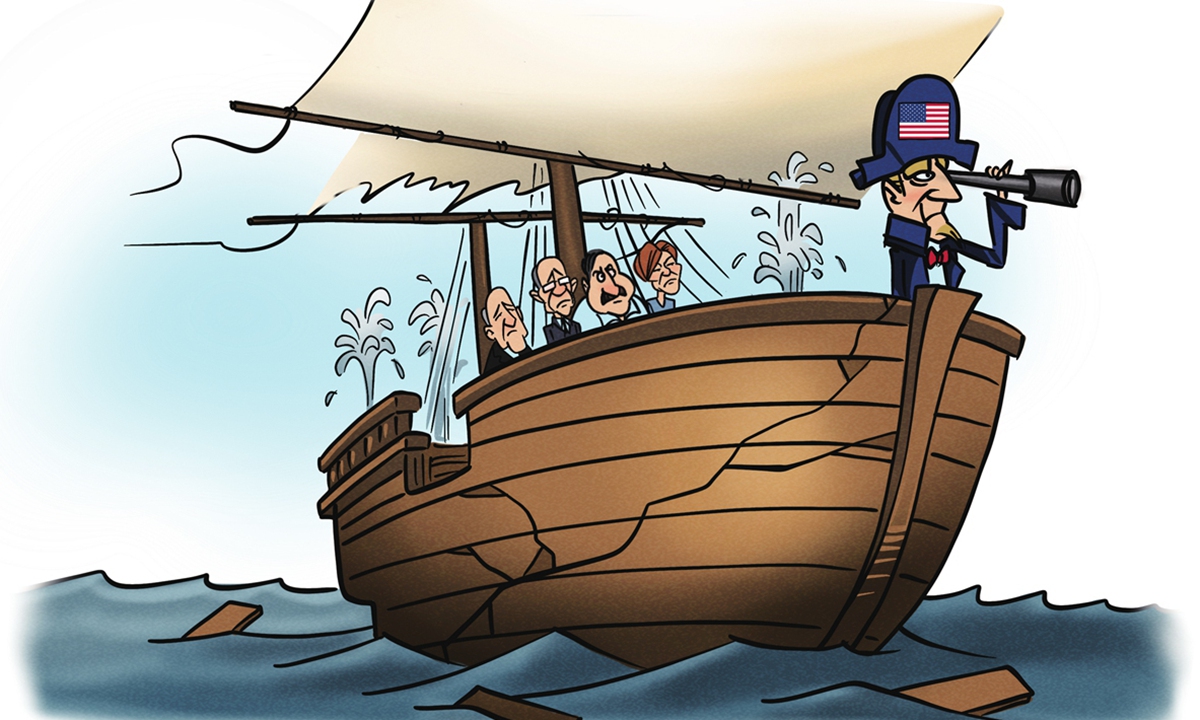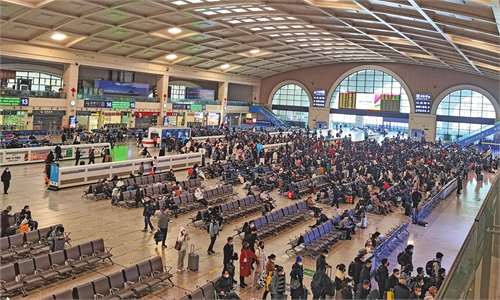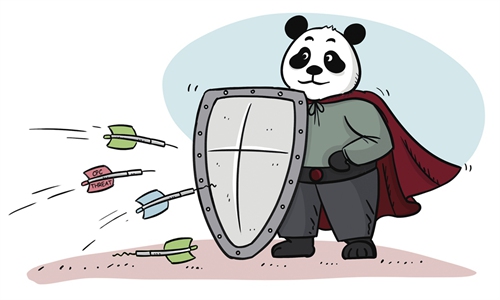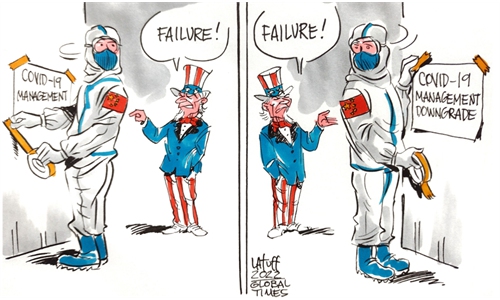
Illustration: Liu Rui/GT
For a long time, some Western media and politicians have suffered from a savior complex. They think they are superior and believe that the only right solution to many issues in this world is to take the Western path. How to restrain such a complex is a serious problem the West is facing.The West often looks at non-Western countries, including China, from an unequal perspective. It always observes and analyzes them with a civilizational and moral superiority and tries to justify it in the face of the global community. Western forces often attempt to portray the West as a condescending and almighty presence in international public opinion.
Many Westerners think that their civilization can save the world and that their values can push the world to progress and become a better place. But the West now lacks a remedy for global issues.
For instance, in the case of COVID-19 epidemic prevention and control, some Westerners still have not given up their inherent savior complex, arguing that the West has the obligation to tell other non-Western countries, including China, what is the right way to counter the virus. Since the beginning of the epidemic, many elites in the West refused to acknowledge China's achievements in anti-COVID efforts and even thwarted their countries from learning from China. Some Western media continue to criticize, undermine and even maliciously speculate about China after the country downgraded the management of COVID-19 from Class A to Class B.
The messiah complex of some Western elites is the product of an innate sense of superiority in the West's institutions, ideology and culture. But this pride has led to a lack of systematic self-reflection in these groups. As a result, even if many members of the intellectual community in the West have started to reflect on their system, such retrospection is not accepted by the ruling elites in the West.
Xu Liang, an associate professor at the School of International Relations of Beijing International Studies University, told the Global Times that, in general, the more inclusive a culture and its institutions are, the more dynamic and innovative they will be. On the other hand, the more rigid and self-important they become, the more they will harm themselves and become powerless against a decline.
As Xu noted, the West is obviously facing systemic decline, and the best solution is for the East and West to learn from each other. In this process, the two sides can better find solutions to overcome the problems they are facing now.
However, it is hard for the West to break from the limits it has set for itself. With arrogance and a lack of will to learn from others, it can hardly accept opposing voices from the outside and even within itself. Nor does it have the will to understand the Eastern world's culture and learn from it. The savior complex does more harm than good in solving the current political, economic, cultural, and social dilemmas the West is facing.
From a short-term perspective, some ruling Western elites will still lack the ability to reflect on themselves actively, let alone recover from their savior complex. The structural contradictions of the Western world cannot be fundamentally resolved.
If Western elites are to engage in fundamental reflections, they have to give up quite an amount of their vested interests, which would be too painful for them. As a result, they can push forward a rough and low-level reform instead of a systematic and large-scale one.
Xu believes that as Western decline drags on, it will trigger a growing number of social problems within the Western system. "In that case, the social disturbance may force the West's ruling elites to resort to reforms and reflect on themselves," he noted.
The author is a reporter with the Global Times. opinion@globaltimes.com.cn



